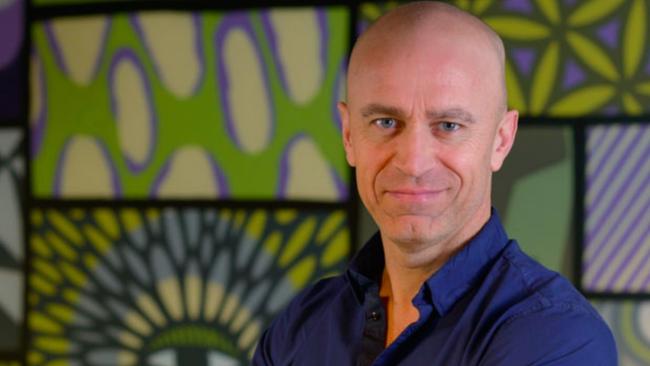Facebook veteran Stephen Scheeler’s Omniscient Neurotechnology puts brains on the map
Former Facebook Australia boss Stephen Scheeler is on a mission to unlock the secrets of the brain.

Former Facebook Australia chief executive Stephen Scheeler isn’t interested in the space race between Jeff Bezos, Elon Musk and Richard Branson.
Instead he is focused on a different kind of space – the one “between the ears of almost eight billion people on earth”.
And he has secured support from some big-name investors, including Australia’s richest person Gina Rinehart and Caledonia’s Will Vicars, to help him on his mission to “unlock the secrets of the brain”.
Mr Scheeler helped guide Facebook’s rise from quirky “bulletin board” to tech titan, leading its Australia and New Zealand operations for four years until 2017. Now he has embarked on a new quest, helming fledgling biotech Omniscient Neurotechnology.
“We kind of have the Google Maps of the brain,” Mr Scheeler said.
“We take the computing power that we have today – the algorithms and machine learning smarts that have come out of companies like Google and Facebook and Amazon and others.
“We combine that to focus on the biggest data problem there is and the most complex data processor there is, which is the one between the ears of almost eight billion people on earth.”
Omniscient’s maps help neurosurgeons visualise and understand a patient’s brain networks prior to performing surgery, allowing them to avoid healthy brain tissue when removing tumours, preserving key functions such as speech and movement.
This is where the Google Maps analogy comes alive.
In his office in Sydney’s eastern suburbs Mr Scheeler has a copy of Gregory’s street maps.
“I use it for presentations, sometimes I hold it up and say, ‘this is the state of science in understanding the brain today and now I’m going to show you what we do and what we do is so much more advanced’.
“It’s kind of like driving your car without GPS. There are people who do it, but most people have GPS – they don’t have the old Gregory’s.
“Our mapping allows a surgeon to see where the most important brain networks are so they can avoid cutting through networks that are important … (such as) speech, physical motion and higher cognitive capabilities.”
The brain and its secrets are more alluring to Mr Scheeler than conquering outer space. “Jeff Bezos and Richard Branson going into space is a pretty unknown frontier, but this (diving into the human brain) is probably the most fascinating and most significant unknown frontier on the face of the earth.
“That’s what we’re focusing on. It’s moving big data out of the internet and really focusing on how do we use the techniques to unlock the secrets of the brain.”
Omniscient’s brain mapping software has received approval from the US Food and Drug Administration and Australia’s Therapeutic Goods Administration. It is now available in a “handful” of hospitals, and Mr Scheeler hopes to expand its footprint to 500 hospitals in coming years and 4000 specialist neurosurgical centres in the medium term.
Omniscient’s founders include Australia’s best-known brain surgeon, Charlie Teo. While he is not involved with Omniscient’s day-to-day operations, he remains a consultant to the company.
Omniscient this month secured support from Ms Rinehart and Mr Vicars, who led a $40m raising – valuing the private company at about $400m and allowing it to expand its sales force.
“If you scratch a billionaire anywhere around the world, often they have an interest in the brain and in the health and the optimisation of human intelligence and the human brain,” Mr Scheeler said.
“Those folks are at a level where they actually can change the world, and more than just make money, they can have an impact.”
Mr Scheeler hopes to not only shake up brain surgery but the way doctors diagnose and treat mental health disorders.
“We can build products for mental health. So for psychiatrists, things like depression, mental illness, anxiety disorders, we can map all of those things.
“Just as you would walk into the doctor today and say ‘I’m not feeling so well’, the first thing they’ll do is send you for blood tests … 50 years ago that didn’t exist. Well, we see the same thing happening with the brain.”




To join the conversation, please log in. Don't have an account? Register
Join the conversation, you are commenting as Logout